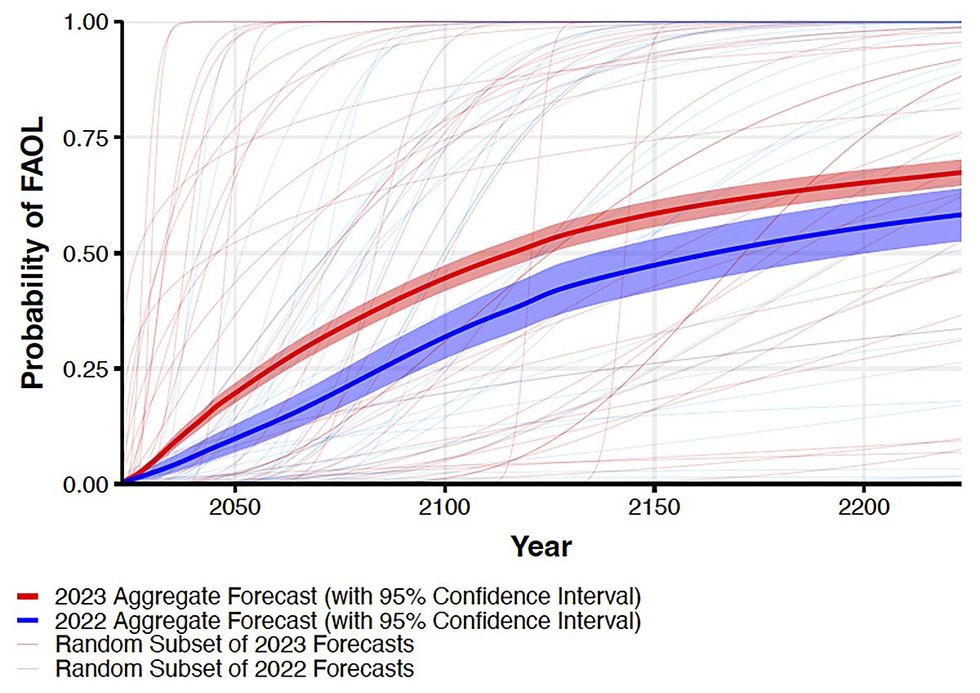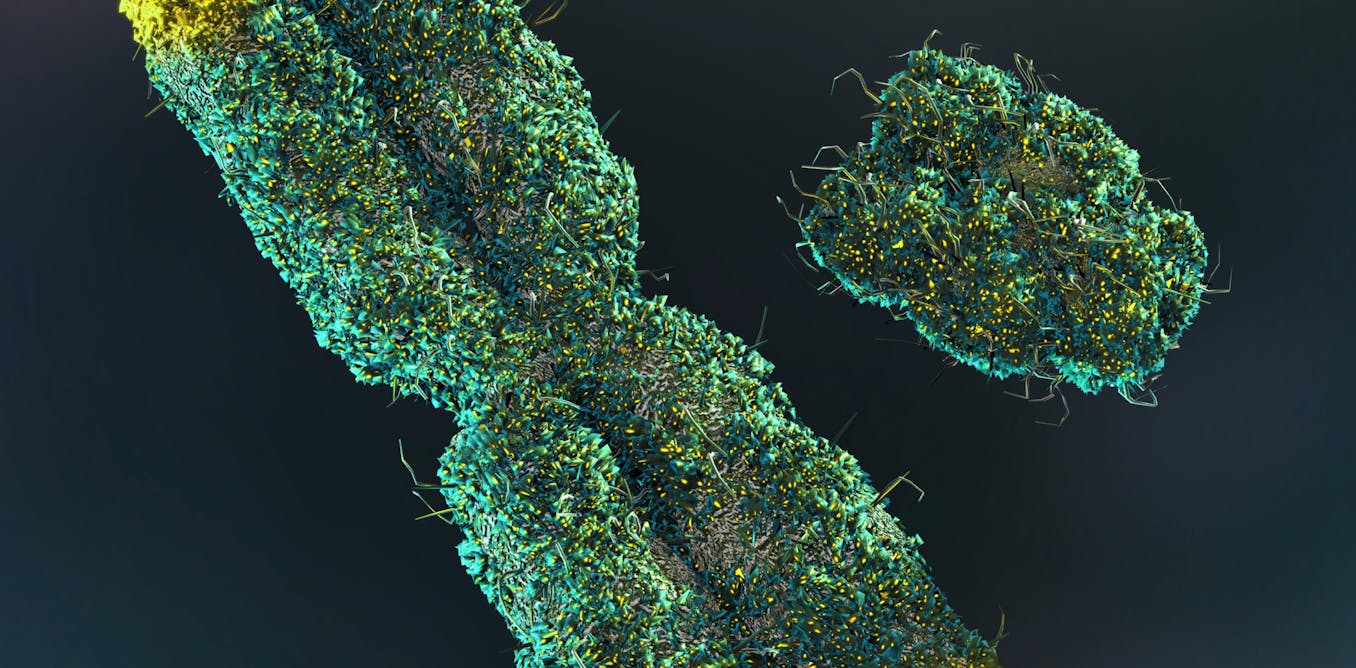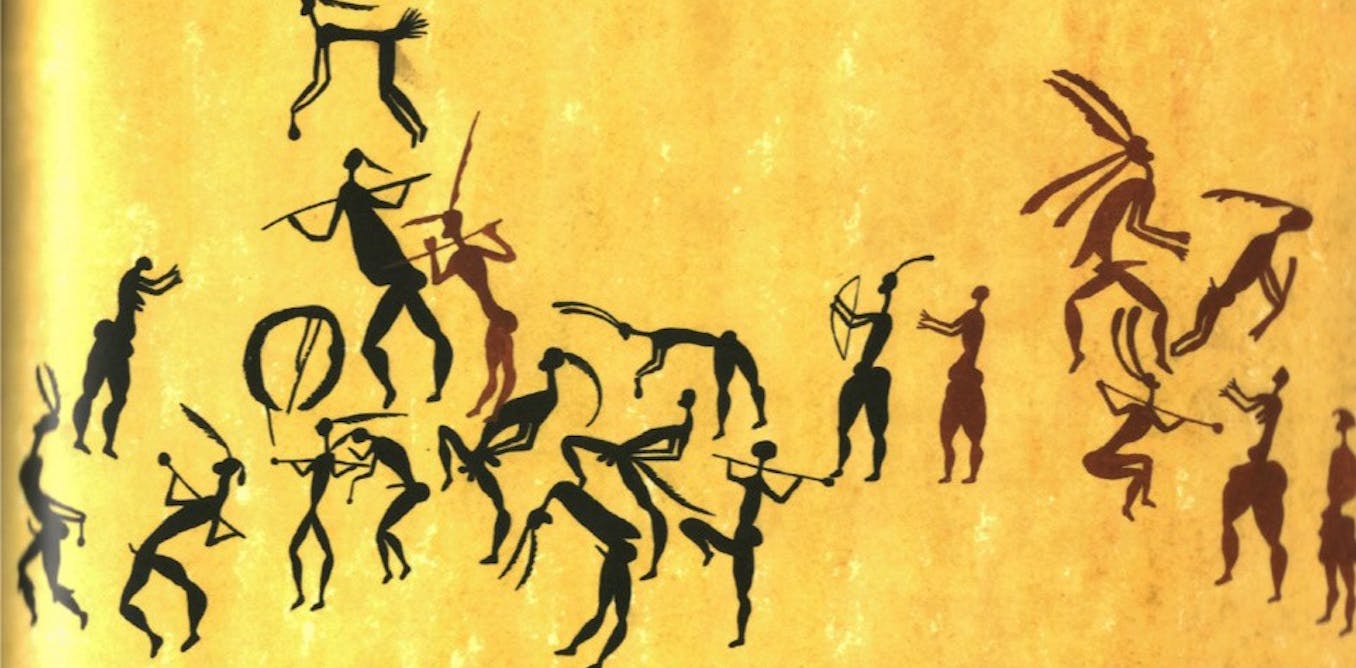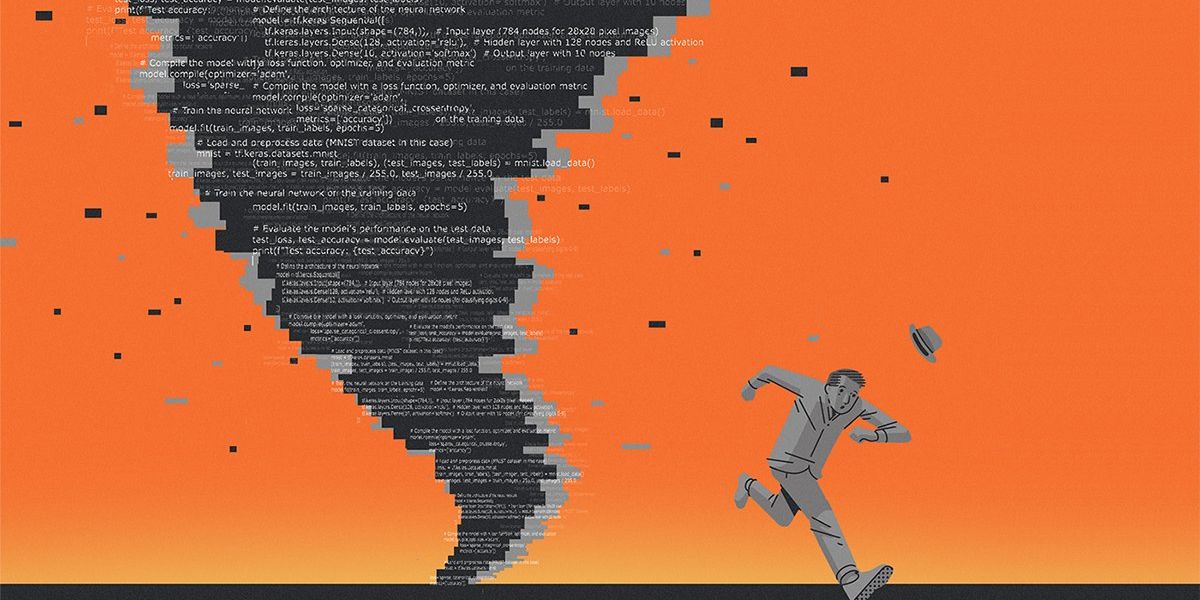As the steady hum of artificial intelligence activity carries on from 2023 into the new year, the research group AI Impacts has released the results of their most recent outlook survey among AI researchers and engineers. Their accompanying preprint (not peer reviewed as of press time) details the results. The group’s analysis of their 2023 Expert Survey on Progress in AI summarizes responses of 2,788 AI researchers to a series of questions regarding the present and far future of AI research.
“When will particular things happen in the future? Is there a risk of bad things happening? In practice, we’re interested in human extinction.”
—Katja Grace, AI Impacts
The 2023 survey follows AI Impact’s 2022 survey, whose median participant reasoned the likelihood of AI-caused “human extinction or similarly permanent and severe disempowerment of the human species” at 5 percent. The likelihood of that same extinction or subjugation resulting from “human inability to control future advanced AI systems” was at a median 10 percent. The median responses to those same questions in the 2023 survey were unchanged, while the median 2023 prediction for AI-driven extinction by the year 2100 was 5 percent.
AI Impacts has been conducting this survey since 2016. Katja Grace, one of the organization’s cofounders and current lead researcher, started the group to map out potential consequences of advancing AI technology. “We’re trying to answer decision-relevant questions about the future of AI,” says Grace. “When will particular things happen in the future? Is there a risk of bad things happening? In practice, we’re interested in human extinction.”

Aggregate and representative responses are graphed here to AI researchers’ projections of the “full automation of labor” (FAOL). AI Impacts
The group runs their now-annual surveys to sample the opinion of the AI research community regarding those consequences. “We are most interested in timelines. We ask about narrow things that will likely happen sooner, which I trust more as straightforward information about what’s plausible,” says Grace. “For longer goals, the numbers are so all over the place that I don’t expect to learn what date they’ll happen, but more expect to learn what the feeling is in the AI community.” Grace goes on to state that mood has some dark corners. “From the survey it’s somewhat hard to judge what the overall mood is, but it seems like there is a fairly widespread belief that there is non-negligible risk of AI destroying humanity in the long run. I have less of a sense of with what mood that belief is held.”
“They marketed it, framed it, as ‘the leading AI researchers believe…something,’ when in fact the demographic includes a variety of students.”
—Nirit Weiss-Blatt, author, The Techlash
Since its founding, AI Impacts has attracted substantial attention for the more alarming results produced from its surveys. The group—currently…
Read full article: Weighing the Prophecies of AI Doom

The post “Weighing the Prophecies of AI Doom” by Michael Nolan was published on 01/25/2024 by spectrum.ieee.org






































